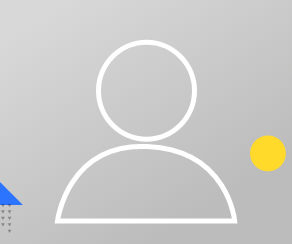Karen Tkaczyk, Ph.D.

Karen Tkaczyk
Freelance Translator
McMillan Translation
Master of Chemistry with French (MCHEM), University of Manchester, UK
Ph.D., Queen's College, University of Cambridge, UK
What do you do with an undergraduate minor in French and a Ph.D. in organic chemistry? If you’re Karen Tkaczyk, you start a translation business focusing on translating chemistry and related science and technology including patents from French into English.
Tkaczyk is the self-motivated owner of her business and is responsible for state licensing, accounting, marketing, and, of course, translating content. She delights in the variety this job entails, saying, “I have always loved languages, and I enjoy the broad range of chemistry and related science and technology that I am exposed to as I translate. One of the most unexpected benefits of my career is the breadth of knowledge I have developed… I thrive on learning about something new with almost every job.”
Tkaczyk relied on her working knowledge of French, a one-year internship in a French pharmaceutical research laboratory, and her own bilingual home (she married a Frenchman) to build her business, but there are certifications in translation that can be useful. One significant translation certification exists in the US: the American Translators Association’s “Certified Translator” credential, Tkaczyk says. “I earned that after I had gained a few years’ experience,” Tkaczyk says. “For me, a niche specialization like chemistry and common-sense business practices were enough to get into the market and be earning a decent income before I was certified.”
ACS has been valuable to Tkaczyk’s career, she says. “The obvious areas where I have benefited from ACS are intellectual and interpersonal. ACS increases my subject matter knowledge and awareness of the industry as a whole. I've also made contacts over the years and enjoyed the networking.”
My high productivity is largely due to how to I handle email. If I can handle an email response in less than two minutes, I do; then I delete or file as appropriate.
Typical day on the job:
“Typical” is a misnomer for a freelancer. We can implement structure if we wish, but variety is the norm. I live in Mountain Time. Many of my clients are east of me, and about half are in Europe. Responsiveness is important, so I handle email early—about 6 a.m. I negotiate, accept, or refuse any jobs that have come in overnight, then get ready for the day. During school hours, which are my core working hours since I have three children, I get the bulk of my translations done. To break up my day I may attend a webinar online, pop to the gym or run an errand. Assuming my workload is not heavy, I take a break after school, then work again in the evening if I need to. So I sit at a desk reading, thinking about the subject matter, researching it as necessary, and writing the content in another language. Sometimes I work weekends, sometimes I take a day off midweek. I have to refuse jobs in order to take time off.
Work environment:
I work exclusively from my home office, though I could work from a laptop anywhere with Wi-Fi. I prefer to work with a powerful desktop and several screens in a quiet place. I only need typical office equipment.
Work schedule:
The freelance world is often described as one of feast and famine. Indeed initially, more famine than feast. I work about 40 hours most weeks, but I sometimes work 70 if I get a rushed or lucrative project, and I take a lot of time off—six to eight weeks a year. I can work from my mobile office when I travel and many freelancers do so, but I prefer to take time off when I'm out of the office. The environment is fast-paced. Everyone wants everything now. I do tend to be connected a great deal, so that my clients receive a prompt response. I always use auto-responders when I want to be offline.
Best productivity trick:
My high productivity is largely due to how to I handle email. If I can handle an email response in less than two minutes, I do; then I delete or file as appropriate. The obvious effect on those I work with is that they see me as responsive. For me though, the lack of mental clutter that results helps me be less distracted when I am working on "real" jobs as opposed to pending communications. I set aside time for messages that need a longer response or in blocks a couple of times a day. My inbox is often empty at the end of the day.
Best career advice you’ve received:
Find something you love doing and earn a living from it.
Skills or talents that make you a good fit for your job:
I'm a proactive, self-motivated person. That is the only way anyone will break into a freelance market and thrive once there.
Essential habit you wish you'd started earlier:
When I write task lists, as well as assigning start or due dates, I assign a priority status for each task (three priority levels). Prioritization makes a substantial difference in keeping me doing the most important things all the time. A simple task list doesn't have the same effect. When I was younger, I just got things done, but wasn't as good at analyzing the worth of each task. The tool I use is Microsoft Outlook—but I'm a power user. I make use of many features ignored by most.
Favorite ACS resource:
I was going to say ACS Webinars, but then I realized that the single most useful resource for my everyday work is the ACS Style Guide, which I am very familiar with and refer to frequently.

